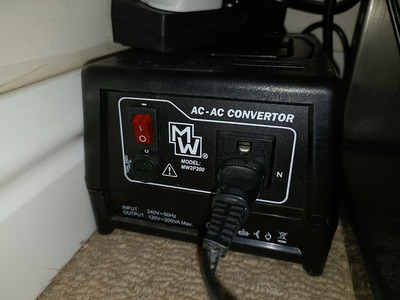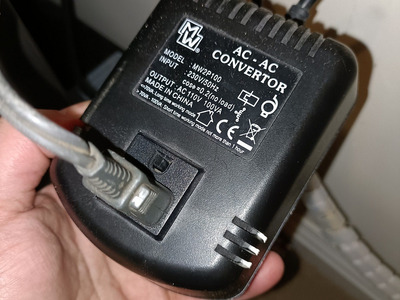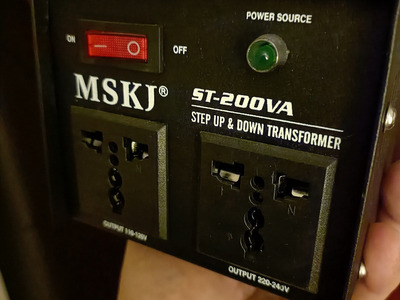Ok, RE: Manual - yes, my paper manual is a Japanese "100V Only" manual, like the sticker on the bottom.
The PSU is definitely a switched mode unit. FET + baby transformer.
The only thing plugged in to the device was the USB cable - as MIDI and Audio can both be transmitted that way, there isn't a need for anything else to hook it up. The MU-50 was also on, but that was plugged into the Alpha.
There is no visual sign of physical damage to any component (i.e. no black smoke escaped, only the magic), and the only thing I've verified to definitely have burned out is the input fuse, as I can't test past that without replacing it. I now have nine of them in a box with the synth, ready to go to a local tech along with the MU-50 (for battery replacement with a holder).
Spikey wrote on 2024-03-21, 15:02:
Sorry to Study, if we were wrong I obviously offer sincerest apologies and it's not a good thing to offer unhelpful advice.
Reflection achieved as requested, I can't ask for any more than that. As for paying towards repairs - don't sweat it. Either it'll be a cheap fix in which case I'll manage; or the thing is completely toast in which case it doesn't matter any way. Regardless, there's no need for you to put out your own money for an honest mistake, just as long as we all agree never to make it again! 😁
I'm no electronics expert, but to the best of my knowledge, a unit at the wrong voltage wouldn't power on for 2 minutes then blow, right? It'd be near instantaneous.
Depends on the design. Something like a transformer, bridge rectifier and filter cap? (A la SC88) that's going to dump fixed ratio x input voltage into the circuit, so if you give it double the voltage; all of a sudden your 5V IC gets 10V and everything is dead in under a second.
With something like a switched-mode, it should output the "target" voltage regardless of the input, however - if the input voltage is at or near the absolute maximum rating of the design or one of the components, it's possible it will work until something takes it just that little bit over; and then something overheats, or otherwise fails, and *then* it dies. The simplest answer is still a weak fuse.
*Or* there was something else already on the verge of failing due to age, and this was just the "straw" as Matt suggested. I'm still highly suspicious of this theory. Occams Razor seems to apply. Regardless, the only way to know either way is to replace the fuse and see what happens; and since I know someone who can do that; we'll let him take the reins. If anyone wants to start a pool, go nuts - as long as I get half the pot as "licensing fees". Also, put me down for £2 for "out of spec cap triggered fuse". I think that's a wrong answer, which means it's probably right.
Regardless; the three takeaways I think are useful from this.
1. Don't dissuade people from taking the safer path if that's what they're comfortable with; even if you think you know better.
2. Read threads to the end before replying, just in case your comment ends up being the gasoline on a fresh match.
3. Don't plug a Japanese SC-D70 into 216-253V mains without using a step-down transformer, unless you actively like to live dangerously or can afford to casually replace it.
As I say, 9 fuses have arrived, but I'm waiting on the transformer before I give it to the Tech. Wish him, me, and it, luck!
Also, long day at a conference tomorrow, but my weekend is going to be FF7 PC with the MU-50 (cheering myself up by living my childhood fantasy) and hopefully having a crack at patching USB Gadget into mt32-pi. Wish me luck with those too.



